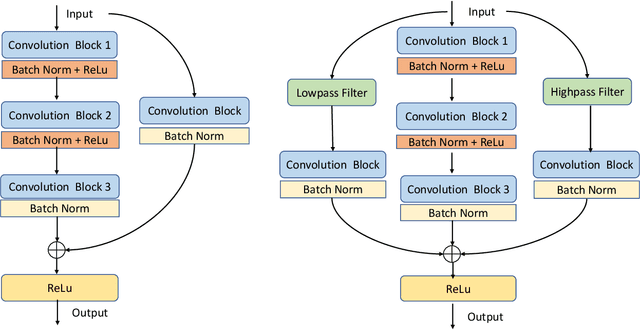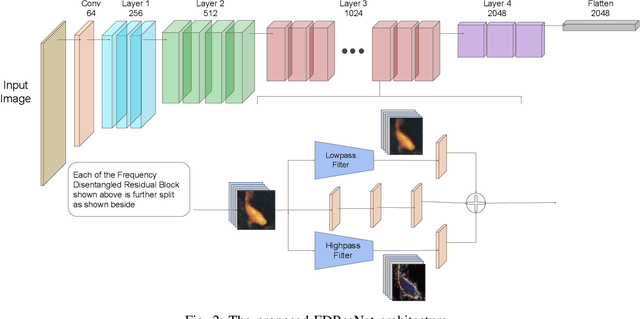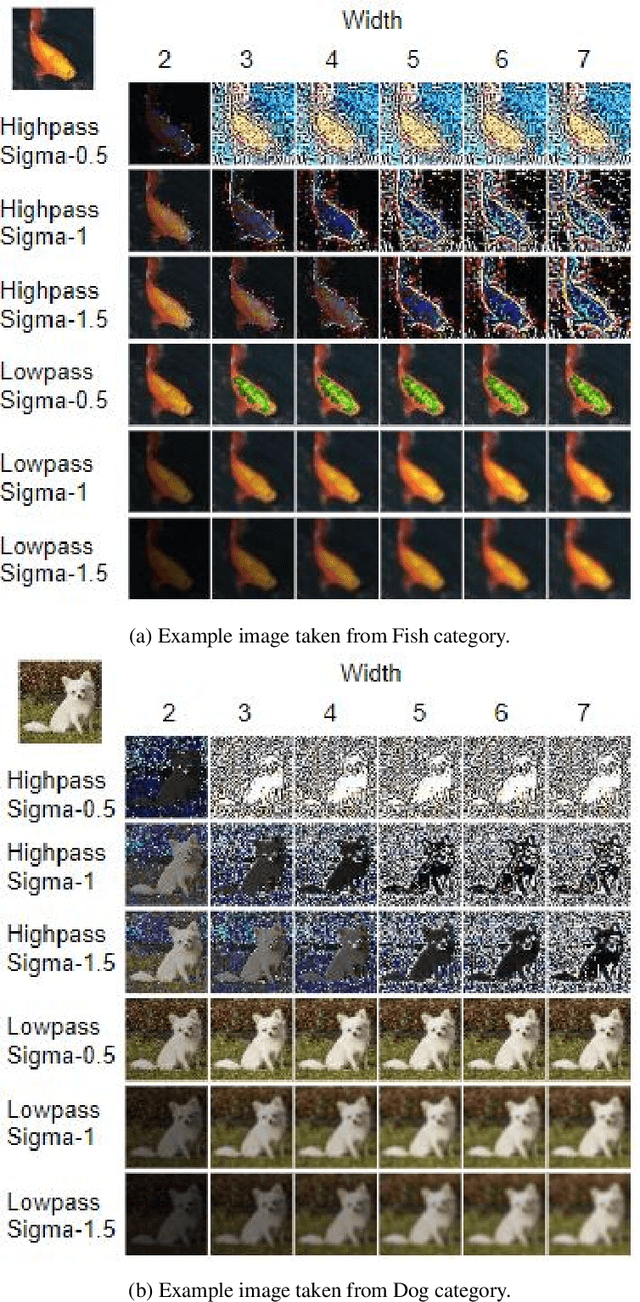Roshan Reddy Yedla
Frequency Disentangled Residual Network
Sep 26, 2021



Abstract:Residual networks (ResNets) have been utilized for various computer vision and image processing applications. The residual connection improves the training of the network with better gradient flow. A residual block consists of few convolutional layers having trainable parameters, which leads to overfitting. Moreover, the present residual networks are not able to utilize the high and low frequency information suitably, which also challenges the generalization capability of the network. In this paper, a frequency disentangled residual network (FDResNet) is proposed to tackle these issues. Specifically, FDResNet includes separate connections in the residual block for low and high frequency components, respectively. Basically, the proposed model disentangles the low and high frequency components to increase the generalization ability. Moreover, the computation of low and high frequency components using fixed filters further avoids the overfitting. The proposed model is tested on benchmark CIFAR10/100, Caltech and TinyImageNet datasets for image classification. The performance of the proposed model is also tested in image retrieval framework. It is noticed that the proposed model outperforms its counterpart residual model. The effect of kernel size and standard deviation is also evaluated. The impact of the frequency disentangling is also analyzed using saliency map.
On the Performance of Convolutional Neural Networks under High and Low Frequency Information
Oct 30, 2020



Abstract:Convolutional neural networks (CNNs) have shown very promising performance in recent years for different problems, including object recognition, face recognition, medical image analysis, etc. However, generally the trained CNN models are tested over the test set which is very similar to the trained set. The generalizability and robustness of the CNN models are very important aspects to make it to work for the unseen data. In this letter, we study the performance of CNN models over the high and low frequency information of the images. We observe that the trained CNN fails to generalize over the high and low frequency images. In order to make the CNN robust against high and low frequency images, we propose the stochastic filtering based data augmentation during training. A satisfactory performance improvement has been observed in terms of the high and low frequency generalization and robustness with the proposed stochastic filtering based data augmentation approach. The experimentations are performed using ResNet50 model over the CIFAR-10 dataset and ResNet101 model over Tiny-ImageNet dataset.
 Add to Chrome
Add to Chrome Add to Firefox
Add to Firefox Add to Edge
Add to Edge